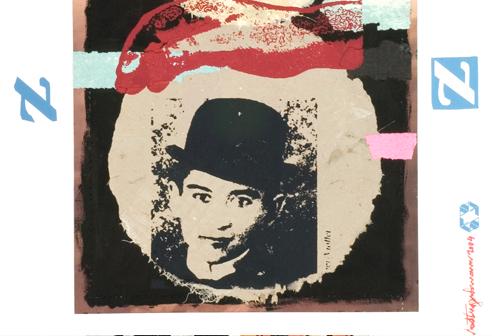The Persistence of Exile in Aharon Appelfeld
DOI:
https://doi.org/10.17851/1982-3053.4.7.37-44Keywords:
Hebrew Literature, Exile, IsraelAbstract
This article discusses the confusion of the concepts of exile and homeland in the life of Hebrew novelist Aharon Appelfeld, an author educated in the framework of Zionist ideology from the time of his arrival in British Palestine, in 1946, but who nevertheless remained attached to the world of his origins, the world of assimilated, German-speaking Jews of Central Europe. Appelfeld always felt very close to the community of expatriates from this region who arrived in Israel as refugees, before or in the aftermath of World War II. During the 1950's, he cultivated close relations with these refugees, who perceived themselves as exiles, and by this means he was able to reconstruct, in fiction, the world he had been uprooted from in 1940, at the age of 8. Two Austro-Hungarian novels by Appelfeld – Be et u've Onah Ahat and Massa al há-Horef – are also discussed here. In these novels he draws an emphatic portrait of the community of assimilated Jews in interbellum Europe. These Jews appear lost between a cosmopolitan and humanistic ideology, which rapidly disappears before the advance of fascist nationalism, and the decline of Hassidism. Suspended between two worlds which are in themselves about to disappear, these Jews resemble a new "Generation of the Desert", whose journeys take them to the nowhere of permanent exile.
Downloads
References
APPELFELD, Aharon. A Table for One – Under the Light of Jerusalém. Londres: The Toby Press, 2000.
APPELFELD, Aharon. Massa al ha-Horef. Jerusalém: Keter, 2004.
APPELFELD, Aharon. The Healer. Nova York: Grove Press, 1990.
ARENDT, Hannah. Die Verborgene Tradition. – Essays. Frankfurt: Jüdischer Verlag bei Suhrkamp, 1976.
DOMB, Risa. Identity and Modern Israeli Literature. Londres: Valentine Mitchell, 2006.
ROTH, Philip. Entre nós. Trad. Paulo Henriques Britto. São Paulo: Companhia das Letras, 2008.
SCHWARTZ, Yigal. Aharon Appelfeld: From Individual Lament to Tribal Eternity. Hannover: Brandeis University Press, 2001.
Downloads
Published
How to Cite
Issue
Section
License
Os direitos autorais pertencem exclusivamente aos autores. Os direitos de licenciamento utilizados pelo periódico é a licença Creative Commons Attribution 4.0 (CC BY 4.0): são permitidos o compartilhamento (cópia e distribuição do material em qualquer meio ou formato) e adaptação (remix, transformação e criação de material a partir do conteúdo assim licenciado para quaisquer fins, inclusive comerciais.






